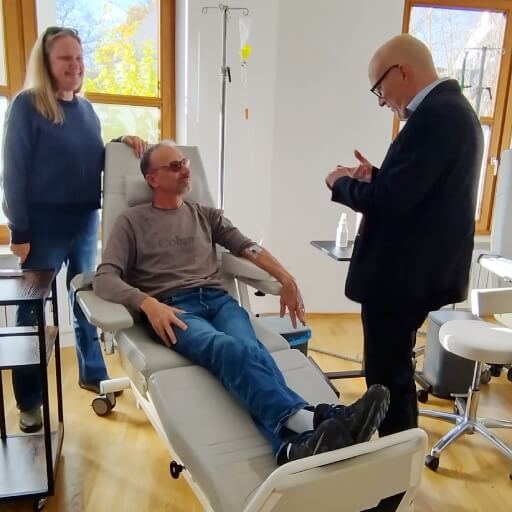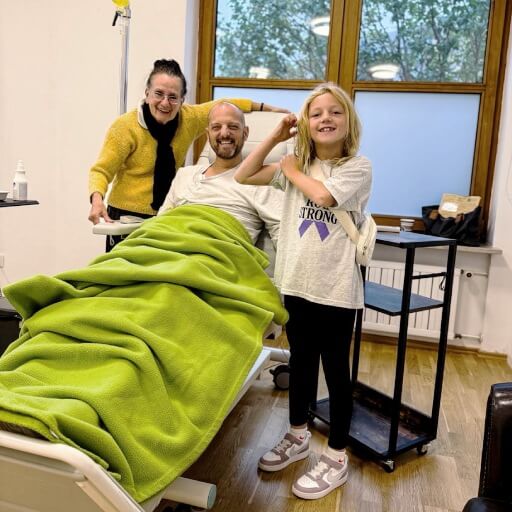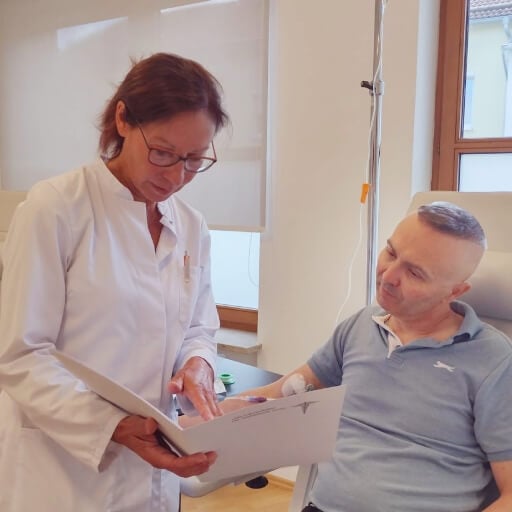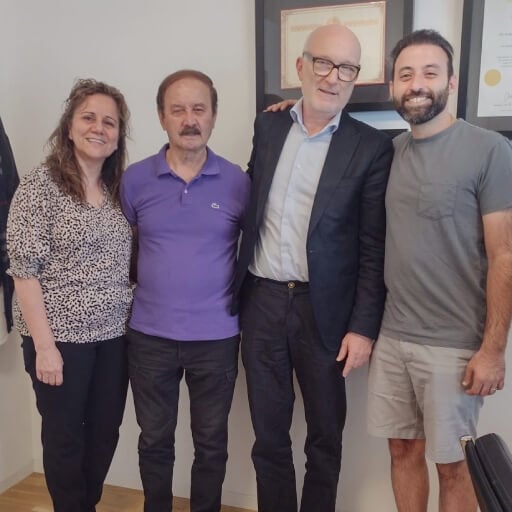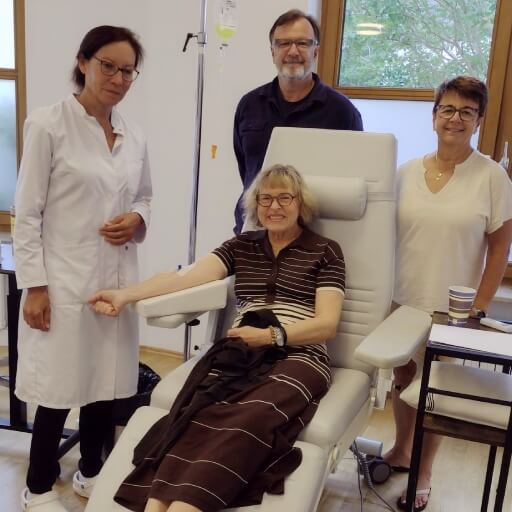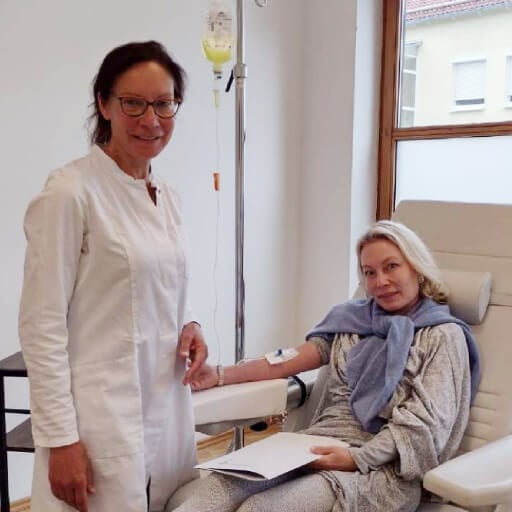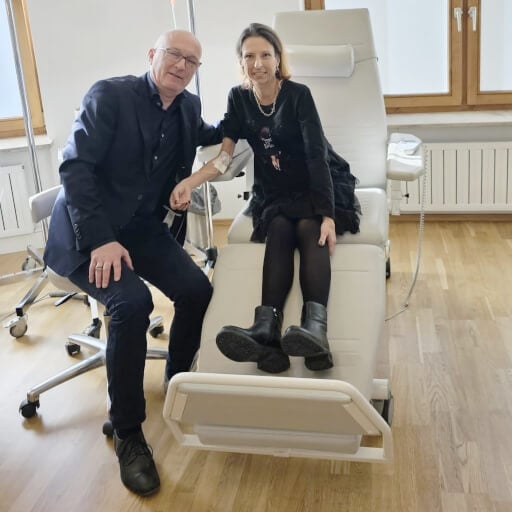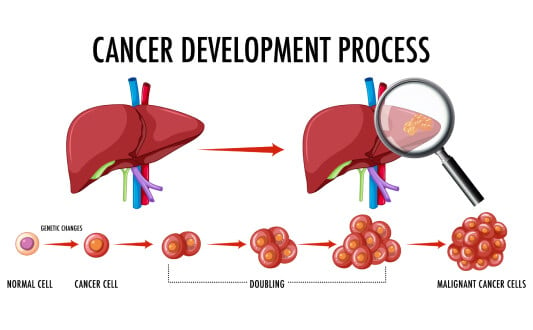Рак печени по-прежнему остается одной из наиболее актуальных проблем международной системы здравоохранения в XXI веке. Он занимает третье место среди причин смерти от рака во всем мире, причем подавляющее большинство случаев приходится на гепатоцеллюлярную карциному (ГЦК). По данным Глобальной онкологической обсерватории, только в 2022 году было диагностировано более 900 000 новых случаев рака печени, и это число продолжает расти [1].
Традиционные методы лечения, такие как хирургическое вмешательство, абляция, химиотерапия или таргетная терапия, демонстрируют лишь умеренный успех, особенно на поздних стадиях онкопатологии. Такое положение вещей вызвало растущий интерес к инновационным вариантам лечения рака печени, способным восстановить естественные защитные механизмы организма. Среди них особенно выделяется терапия дендритными клетками – эффективный терапевтический подход, обеспечивающий запуск персонализированного и высокоточного иммунного ответа против опухолей печени. В этой статье мы рассмотрим, как терапия дендритными клетками меняет подход к лечению рака печени и в чем заключается ее ценность для пациентов с этим тяжелым заболеванием.
Что такое терапия дендритными клетками
Терапия дендритными клетками (ДК) – это форма иммунотерапии, при которой для таргетной борьбы с раком задействуется собственная иммунная система пациента. Принцип действия метода основан не на прямом воздействии на опухоль, а на мобилизации естественных защитных механизмов иммунной системы – в частности, цитотоксических Т-клеток – для распознавания и уничтожения раковых клеток. Научная основа этого метода была настолько новаторской, что в 2011 году Ральфу Штейнману была присуждена Нобелевская премия по физиологии и медицине за открытие дендритных клеток и их важнейшей роли в регуляции адаптивного иммунитета [2].
Роль дендритных клеток в иммунном контроле
Дендритные клетки (ДК) часто называют «стражами» иммунной системы: они непрерывно «патрулируют» организм в поисках аномальных структур, захватывая антигены патогенов или злокачественных клеток и представляя их Т-лимфоцитам. Процесс презентации происходит в лимфатических узлах – именно здесь дендритные клетки «обучают» Т-клетки распознавать, какую именно мишень следует атаковать. После активации эти Т-клетки циркулируют в кровотоке, выискивая клетки с такой же антигенной сигнатурой.
Важнейшая роль дендритных клеток в терапии рака заключается в их способности инициировать мощный специфичный иммунный ответ. В отличие от других антигенпрезентирующих клеток, дендритные клетки стимулируют как CD4+ Т-хелперы, так и CD8+ цитотоксические Т-клетки, запуская тем самым комплексную иммунную атаку, которая способна адаптироваться к сложному микроокружению опухоли [3].
Как терапия дендритными клетками задействует защитные механизмы иммунной системы
Суть терапии дендритными клетками заключается в следующем: осуществляется забор этих мощных иммунных клеток, после чего их «знакомят» с опухоль-специфическими антигенами вне организма пациента и повторно вводят онкобольному с целью запуска целенаправленного Т-клеточного ответа. При попадании в организм пациента эти дендритные клетки направляются в лимфоидные ткани, где они доставляют свое антигенное «сообщение» и активируют Т-клетки, способные воздействовать на рак с исключительной специфичностью.
Данный терапевтический подход помогает преодолеть одну из самых серьезных проблем в онкологии – иммунную толерантность. Иммунная система часто упускает из виду опухоли, поскольку не распознает их как угрозу. Терапия дендритными клетками коренным образом меняет этот сценарий: с ее помощью удается сделать невидимое видимым и превратить пассивные иммунные клетки в активные агенты, способные уничтожать опухоли.
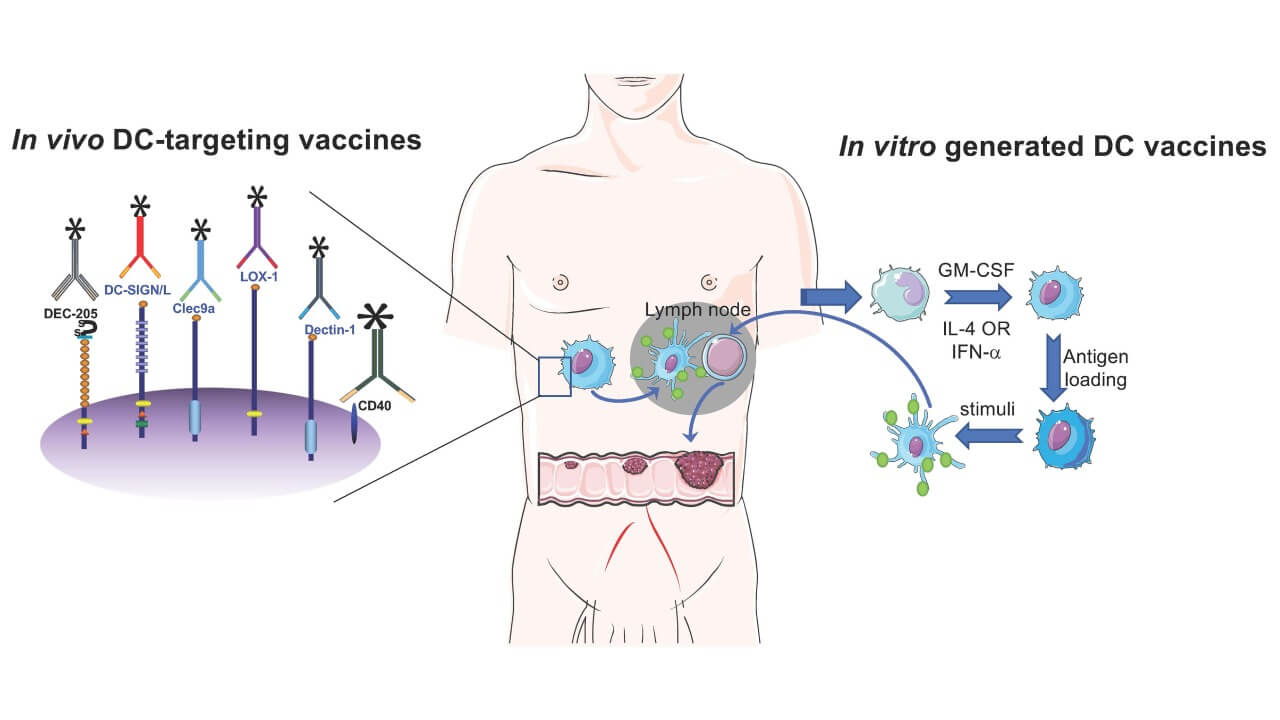
Отличительные особенности терапевтического подхода
По сравнению с традиционными видами терапии рака, лечение рака дендритными клетками отличается:
- Персонализированностью – каждая вакцина изготавливается с учетом антигенов опухоли конкретного пациента
- Селективностью – воздействует исключительно на злокачественные клетки без вреда для здоровых тканей
- Иммунологической памятью – после активации иммунная система «запоминает» опухоль, что снижает риск развития рецидива
- Совместимостью – метод хорошо сочетается с терапией ингибиторами контрольных точек иммунного ответа, химиотерапией и хирургическими методами лечения
Область иммунотерапии рака в настоящее время находится на этапе активного развития, и лечение дендритными клетками довольно быстро переходит из категории экспериментальной концепции в разряд клинически значимой и все более доступной терапии, соответствующей естественной природе иммунной системы.
Принцип действия терапии дендритными клетками при раке печени
Дендритная клеточная терапия рака печени считается перспективным вариантом лечения не только с теоретической точки зрения: метод уже демонстрирует клиническую эффективность при гепатоцеллюлярной карциноме (наиболее распространенной форме первичного рака печени), а также при лечении метастазов печени дендритной клеточной терапией. Многочисленные исследования последних лет показали, что иммунотерапия дендритными клетками способствует улучшению иммунного контроля, замедлению прогрессирования опухоли и существенному повышению показателей выживаемости у пациентов с раком печени на любой стадии.
Клинические данные и преимущества в плане выживаемости
В обзоре 2020 года, опубликованном в научном журнале International Journal of Molecular Sciences, представлены обобщены данные многочисленных клинических исследований, посвященных оценке вакцинации дендритными клетками в иммунотерапии гепатоцеллюлярной карциномы [5]. По результатам этого обзора, терапия дендритными клетками – как в виде монотерапии, так и в сочетании с цитокин-индуцированными клетками-киллерами – помогает увеличить продолжительности жизни без прогрессирования заболевания и улучшить показатели общей выживаемости, особенно у пациентов, которые не являются кандидатами на хирургическую резекцию или трансплантацию печени.
В одном из исследований, упомянутом в обзоре, у пациентов, которым вводили сенсибилизированные к опухолевому антигену дендритные клетки, медиана общей выживаемости составила более 30 месяцев, что значительно превышает показатели исторических контрольных групп. Кроме того, у пациентов, получавших такое лечение, наблюдался устойчивый антиген-специфический Т-клеточный ответ и снижение уровня сывороточных маркеров, отражающих опухолевую нагрузку. Эти иммунные ответы коррелировали с улучшением контроля над заболеванием и снижением частоты развития рецидивов.
Механизмы в микроокружении опухоли
Одно из ключевых преимуществ ДК при раке печени заключается в их способности перепрограммировать иммуносупрессивное микроокружение опухоли. Опухоли ГЦК часто используют механизмы, подавляющие Т-клетки или индуцирующие иммунную толерантность, такие как повышенная экспрессия PD-L1 или секреция TGF-β и IL-10. Терапия дендритными клетками помогает преодолевать эти механизмы, представляя опухолеассоциированные антигены в высокоиммуногенном контексте, что активирует цитотоксические CD8+ Т-клетки и CD4+ Т-хелперы, способные преодолевать эти барьеры.
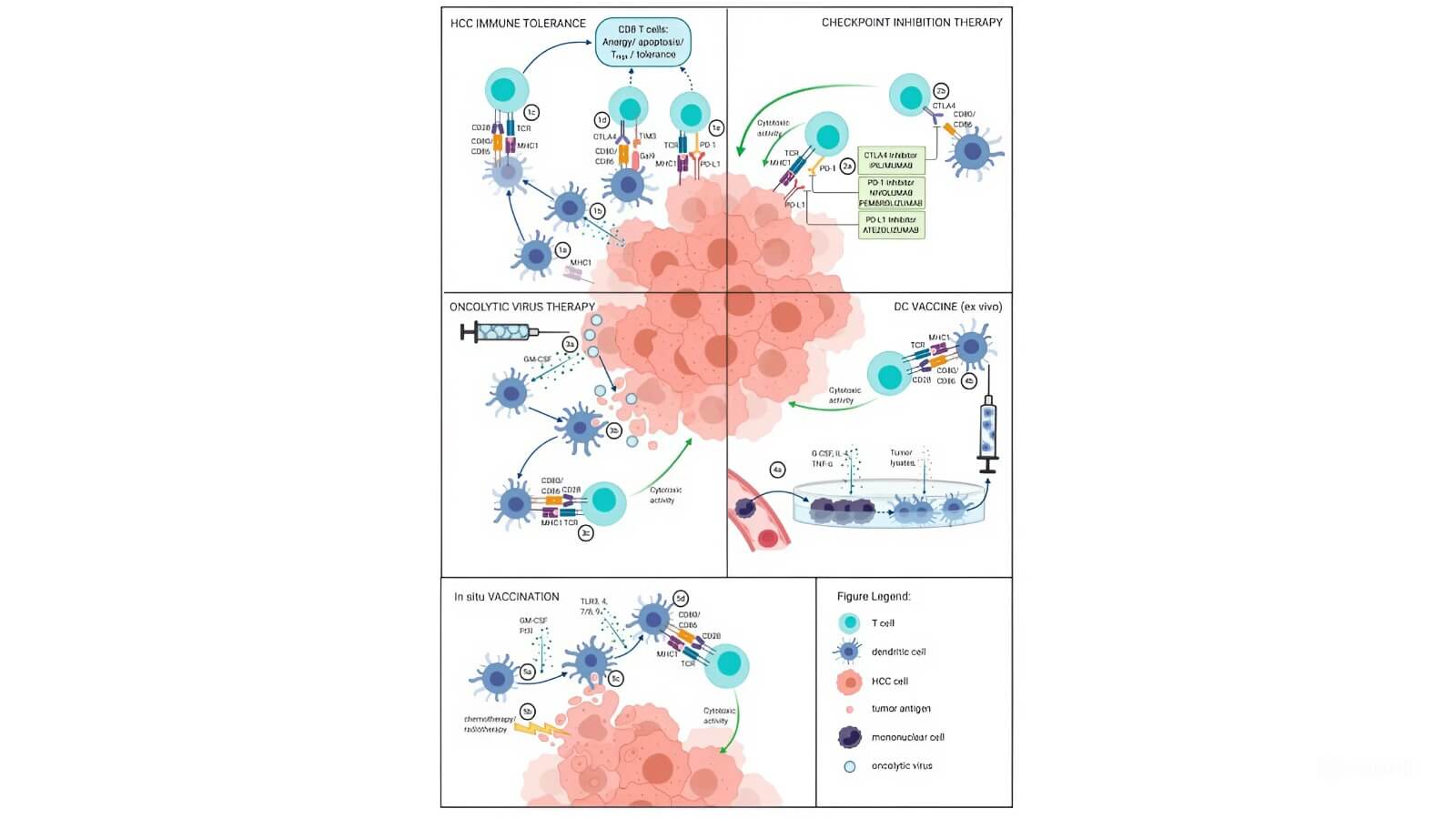
Во многих случаях дендритные клетки используются ex vivo, то есть они генерируются и созревают вне организма с использованием опухолевых лизатов или определенных антигенов. Эти зрелые, «нагруженные» антигенами дендритные клетки затем повторно вводятся пациенту для активации опухоль-специфических Т-клеток, способных уничтожать онкологические очаги в печени.
| Параметр | Традиционное лечение | Терапия дендритными клетками |
|---|---|---|
| Подход к лечению | Воздействует непосредственно на опухолевые клетки | Активирует иммунную систему для атаки на опухолевые клетки |
| Механизм действия | Цитотоксические препараты блокируют деление клеток или кровоснабжение | Представляет опухолевые антигены Т-клеткам для активации специфического иммунного ответа |
| Контроль над заболеванием | Замедляет прогрессирование рака, помогает временно уменьшить размер опухоли | Улучшает долгосрочный контроль над заболеванием и снижает риск развития рецидива |
| Побочные эффекты | Тошнота, повышенная утомляемость, токсическое воздействие на печень, подавление иммунитета | Незначительные побочные эффекты: субфебрильная температура, повышенная утомляемость, реакция в месте инъекции (в редких случаях) |
| Иммунологический эффект | Со временем ослабляет иммунный ответ | Способствует усилению опухоль-специфического иммунитета и формированию иммунной памяти |
| Персонализация | Стандартизированные протоколы для большинства пациентов | Полностью персонализированная форма иммунотерапии с использованием собственных антигенов пациента |
Лечение рака печени дендритными клетками в Германии
Германия давно признана мировым лидером в области лечения онкологических заболеваний. В этой стране пациентам предоставляется точная диагностика, инновационные варианты лечения рака печени и обслуживание в соответствии с клиническими стандартами мирового уровня. Немецкие клиники завоевали репутацию одних из наиболее опытных и передовых в области лечения рака дендритными клетками. Пациенты со всего мира выбирают лечение в Германии не только из-за высокого профессионализма врачей, но и из-за доступа к протоколам иммунотерапии, которые медучреждения в других странах зачастую предложить не могут.
Почему Германия является лидером в области терапии дендритными клетками
Дендритная клеточная терапия рака печени проводится лишь в ведущих клиниках в Германии. На базе таких клиник ведут работу сертифицированные центры иммуноонкологии с лабораториями, которые соответствуют стандартам Надлежащей производственной практики (GMP) и строго следят за соблюдением производственных стандартов. Суть данного терапевтического метода состоит в изготовлении персонализированных вакцин из собственных клеток крови пациента, которые затем «нагружаются» опухоль-специфическими антигенами для эффективного уничтожения раковых клеток.
Клиники в Германии отличаются не только доступом к прогрессивным технологиям для производства клеточных вакцин, но и особенностями интеграции дендритной клеточной терапии рака печени в комплексные программы лечения. Междисциплинарные медицинские команды, в состав которых входят онкологи, иммунологи и гепатологи, оценивают состояние каждого пациента с целью составления для него полностью персонализированной терапевтической схемы. Специалисты часто проводят иммунотерапию в комплексе с локорегиональными процедурами, например, TACE, абляцией или хирургическим вмешательством, – оптимальный метод подбирается в зависимости от стадии опухоли и функции печени.
Кроме того, в эти протоколы включено лечение метастазов печени дендритной клеточной терапией – перспективный метод для улучшения иммунного ответа и контроля прогрессирования заболевания.
Прозрачность и безопасность
Одним из ключевых преимуществ лечения рака печени в Германии является прозрачность процесса: пациентам подробно рассказывают о каждом этапе схемы лечения, включая лабораторные процедуры, контроль качества и ожидаемые результаты. Стоимость лечения в Германии дендритными клетками составляет €20,000-€38,000 – в зависимости от сложности клинической ситуации и необходимости применения дополнительных терапевтических методов. В отличие от многих стран, лечение рака печени в Германии проводится по прозрачным и регулируемым ценам без скрытых платежей.
| Стоимость лечения | Традиционное лечение рака печени | Дендритная клеточная терапия рака печени |
|---|---|---|
| Цены на лечение в Германии | $30,000 – $120,000 за полный курс | $20,000 – $38,000 за полный курс |
| Цены на лечение в Великобритании | $28,000 – $130,000 за полный курс | Недоступна |
| Цены на лечение в США | $80,000 – $200,000 за полный курс | Ограниченная доступность, в пределах $100,000 – $150,000 |
Как начать лечение за границей
Для многих пациентов с онкологическими заболеваниями, особенно тех, кто рассматривает прогрессивные терапевтические подходы, включая лечение рака дендритными клетками, обращение за медицинской помощью в зарубежную клинику является серьезным решением. Речь идет не только о выборе подходящего медучреждения, но и о необходимости разобраться в особенностях незнакомой системы здравоохранения, решить языковой вопрос и продумать логистику. Именно здесь на помощь приходит Booking Health.
Оценка медицинских заключений и персональное предложение
С момента первого контакта с пациентом весь процесс проходит максимально гладко и прозрачно. На первом этапе сотрудничества с Booking Health пациент предоставляет специалистам компании пакет медицинских документов, включая последние снимки, результаты лабораторных исследований или биопсии. На следующем этапе медицинские заключения пациента тщательно изучаются ведущими специалистами сертифицированных немецких клиник, после чего они оценивают возможность включения терапии дендритными клетками в его комплексную схему лечения.
После этого Booking Health предоставляет пациенту подтвержденное предложение по лечению, составленное непосредственно специалистами выбранной для лечения клиники. В данном предложении содержится детализированный перечень планируемых процедур, а также указаны сроки пребывания в клинике и общая стоимость лечения. Таким образом, пациент получает оптимальное предложение по лечению, при этом нет посредников и расходы на предстоящую терапию полностью прозрачны: все формализовано, четко и основано на реальных клинических данных больного.
Полная поддержка до, во время и после поездки
Следует отметить, что зона ответственности команды Booking Health не ограничивается лишь установлением контакта между пациентами и врачами. Сотрудники компании обеспечивают координацию всех этапов лечения, включая оказание помощи с подачей заявлений на получение медицинской визы, организацию трансфера из аэропорта и обратно, бронирование номера в отеле рядом с клиникой, предоставление услуг переводчика и личного координатора на весь период лечения. Для многих пациентов именно благодаря такому уровню поддержки продвинутое лечение рака печени за рубежом становится не только возможным, но при этом и надежным вариантом.
Как правило, обследование проводится на месте, в клинике, до начала терапии. Диагностическая программа может включать в себя визуализационные исследования, иммунное профилирование опухоли или анализы крови для совершенствования терапевтического подхода и персонализации вакцины на основе дендритных клеток.
Даже после возвращения домой пациенты продолжают поддерживать связь с зарубежной клиникой: Booking Health обеспечивает коммуникацию после лечения, помогает получить рекомендации по дальнейшему наблюдению и консультации лечащего врача из немецкой клиники – при необходимости. Благодаря усилиям компании пациенты получают модель постоянной поддержки, сочетающую в себе клиническую точность немецкой медицины и комфорт для иностранцев.
Поездка на лечение за границу с Booking Health
Самостоятельный поиск наилучшей тактики лечения с учетом вашей индивидуальной клинической ситуации – довольно сложная задача. Испытав на себе многочисленные курсы лечения, проконсультировавшись со множеством специалистов и испробовав различные терапевтические процедуры, вам может быть трудно сориентироваться во всей предоставленной врачами информации. В таком случае пациенты зачастую выбирают первый же предложенный вариант лечения или соглашаются на лечение с применением стандартизированных терапевтических протоколов, которое повлечет за собой множество побочных эффектов, вместо того, чтобы рассмотреть возможность терапии с помощью инновационных процедур.
Если вы хотите сделать осознанный выбор и получить лечение рака в соответствии с индивидуально разработанной для вас схемой с учетом особенностей вашей конкретной клинической ситуации, проконсультируйтесь с врачами-консультантами Booking Health. Компания Booking Health уже более 12 лет занимает ведущие позиции в сфере организации лечения за рубежом с применением новейших инноваций в медицине, поэтому ее специалисты обладают огромным опытом в составлении персонализированных комплексных программ лечения рака для каждого пациента. Booking Health пользуется репутацией авторитетной компании, которая предоставляет персонализированный подбор схемы лечения рака печени и клиники с прямым бронированием приема в медицинском центре и полной поддержкой на каждом этапе лечения – от решения организационных вопросов до помощи в процессе лечения. Мы предлагаем:
- Оценку и анализ медицинских заключений пациента
- Составление индивидуальной программы лечения
- Подбор подходящего медицинского учреждения для лечения
- Подготовку медицинской документации и ее направление в выбранную пациентом для лечения клинику
- Консультации с врачами зарубежной клиники для разработки оптимальной медицинской программы на этапе подготовки к поездке на лечение
- Экспертные консультации во время пребывания в больнице
- Последующее консультирование пациента после его возвращения на родину по завершении медицинской программы
- Решение организационных вопросов в рамках подготовки к поездке на лечение за границу
- Координацию пребывания пациента в другой стране, помощь в бронировании отеля или апартаментов на период лечения
- Помощь в оформлении визы и бронировании авиабилетов
- Услуги переводчика и персонального координатора, который будет с вами на связи 24/7
- Прозрачные цены на лечение без скрытых платежей
Здоровье – главная ценность в жизни каждого человека, доверять заботу о которой стоит лишь лучшим специалистам с богатым опытом и проверенной репутацией. Booking Health – это ваш надежный партнер, который оказывает всестороннюю помощь на пути к восстановлению здоровья и улучшению качества жизни. Свяжитесь с врачом-консультантом компании, чтобы узнать больше о возможностях персонализированного лечения рака печени у ведущих экспертов с использованием инновационных методов.
Дендритные клетки в онкологии: опыт пациентов Booking Health
Частые вопросы об иммунотерапии дендритными клетками при раке печени
Отправить запрос на лечениеЭто форма персонализированной иммунотерапии, при которой иммунные клетки пациента «обучают» распознавать и атаковать клетки рака печени. Данная терапия способствует усилению иммунного контроля и помогает организму эффективнее бороться с опухолями.
Да, результаты исследований подтверждают, что эффективность лечения рака дендритными клетками обусловлена стимуляцией опухоль-специфического Т-клеточного ответа. При иммунотерапии рака печени, в отличие от традиционных методов, у многих пациентов наблюдается укрепление иммунной защиты и повышение показателей выживаемости.
Да, лечение метастазов печени дендритной клеточной терапией способствует активации иммунного ответа против вторичных опухолей. При проведении терапии дендритными клетками в комбинации с локорегиональными процедурами, такими как TACE, метод помогает повысить способность организма распознавать и подавлять онкопроцесс, распространившийся на печень.
Лечение рака дендритными клетками в Германии проводится в специализированных немецких онкологических клиниках, предлагающих такую терапию в соответствии со строгими стандартами Надлежащей производственной практики (GMP). Вакцины изготавливаются в индивидуальном порядке с учетом профиля опухоли каждого пациента, а также они часто применяются в составе программы комбинированного лечения в качестве дополнения TACE или химиотерапии для усиления активации иммунной системы и улучшения терапевтических результатов.
Пациенты с раком любой стадии могут рассматриваться как кандидаты на лечение дендритными клетками, при условии удовлетворительного иммунного статуса и функции печени. Многие пациенты, которые не в состоянии перенести стандартную химиотерапию, могут пройти такое лечение в Германии после тщательного медицинского обследования у профильных специалистов.
Как правило, терапия дендритными клетками вызывает лишь незначительные побочные эффекты, наиболее распространенными среди которых являются лихорадка, повышенная утомляемость и локальный отек. В редких случаях есть риск возникновения иммунных реакций, но в целом иммунотерапия считается безопасным методом лечения с низким уровнем токсичности.
Организация лечения рака за рубежом – это довольно сложная задача, но при поддержке оператора медицинского туризма BookingHealth этот процесс становится намного проще. Компания помогает пациентам найти ведущие клиники в Германии, специализирующиеся на терапии дендритными клетками, а также предоставляет полный спектр координационных услуг в ходе лечения за рубежом.
Выбирайте лечение за рубежом и Вы, несомненно, получите отличный результат!
Авторы:
Статья составлена под редакцией экспертов в области медицины, врачей-специалистов доктора Надежды Иванисовой и доктора Богдана Михальнюка. Для лечения состояний, о которых идет речь в статье, необходимо обратиться к врачу; информация в статье не предназначена для самолечения!
С редакционной политикой, которая отражает наше стремление к точности и прозрачности, можно ознакомиться здесь. Перейдите по ссылке, чтобы ознакомиться с нашими правилами.
Источники:
[1] Global Cancer Observatory. Liver Cancer Statistics. https://gco.iarc.fr/today/en/dataviz/tables?mode=population&cancers=11
[2] Nobel Prize. The Nobel Prize in Physiology or Medicine 2011 – Ralph Steinman. https://www.nobelprize.org/prizes/medicine/2011/steinman/facts/
[3] Robbie B Mailliard, Shinichi Egawa, Quan Cai et al. Complementary Dendritic Cell–activating Function of CD8+ and CD4+ T Cells. J Exp Med. 2002 Feb 18;195(4):473–483. doi: 10.1084/jem.20011662. [DOI] [PMC free article]
[4] Frontiers in Immunology. Advances in Human Dendritic Cell-Based Immunotherapy Against Gastrointestinal Cancer. https://www.frontiersin.org/journals/immunology/articles/10.3389/fimmu.2022.887189/full
[5] MDPI. Dendritic Cell and T Cell Crosstalk in Liver Fibrogenesis and Hepatocarcinogenesis: Implications for Prevention and Therapy of Liver Cancer. https://www.mdpi.com/1422-0067/21/19/7378
Читайте:
Комплексное руководство по методам лечения рака печени
Инновационные решения для лечения рака печени и метастазов в печень
Рак печени 4 стадии: комплексное руководство по методам лечения
Меню статьи:
- Что такое терапия дендритными клетками
- Сравнительный анализ подходов к лечению рака печени
- Лечение рака печени дендритными клетками в Германии
- Стоимость медицинских процедур для лечения рака печени
- Как начать лечение за границей
- Поездка на лечение за границу с Booking Health
- Частые вопросы об иммунотерапии дендритными клетками при раке печени
Не знаете, с чего начать?
Свяжитесь с Booking Health
